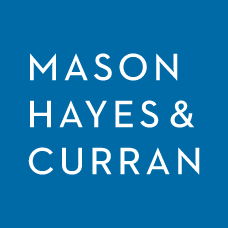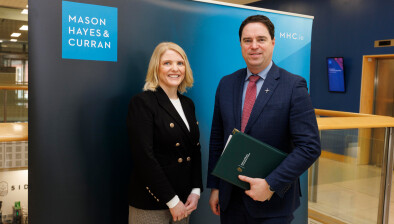Analysis: Can directors of insolvent companies be held personally liable?

James Morrin, Kevin Farrell and Maurice Phelan
Mason Hayes & Curran lawyers James Morrin, Kevin Farrell and Maurice Phelan consider a recent English decision where the directors of an insolvent company were made personally liable for both the company’s and the petitioning creditor’s legal costs.
The recent English decision in Re MPB Developments Limited related to a successful winding up petition. At the conclusion of these proceedings, the court made a non-party costs order against the directors of the insolvent company. The order required them to personally pay both the company’s and the petitioning creditor’s legal costs of the petition.
The English court considered the two central factual questions to be determined in non-party costs applications, whether:
- the non-party directors were the “real party to” the litigation in all the circumstances; and
- if there was some other reason to make the order such as evidence of bad faith in connection with the litigation.
In this case, the court noted that it was not necessary to satisfy both elements to find against the directors.
The court held that the directors were the real parties to the litigation. The two directors in question had, on the facts, controlled the board of directors of the company by majority and caused the company to instruct its solicitors to defend the petition. They had also (via a separate company that they owned and controlled) funded the defence of the petition.
The court held that it had “ample evidence” that the directors acted in their own interests and not in the interests of the company by causing the company to defend the petition. Among other things they:
- Acted without any honest belief the company could pay its debts.
- Sought to position the company to reach a settlement that was in their own personal interest. This was because the settlement would have involved substantial payments to the directors and released them from any further claims.
- Continued to draw salaries, which would have ceased if the petition been successful.
- Caused the company to pursue a speculative defence. They did not have any feasible business plan or expert evidence as to how the company could find a path back to solvency.
The Irish position
There are no reported Irish cases addressing the potential for directors to be exposed to non-party costs orders in the context of a winding up petition (as distinct from liquidators being potentially made personally liable for costs, as we previously discussed).
However, there is an established line of authority which empowers Irish courts to make non-party costs orders, generally. There are also several cases where directors of insolvent companies have been made personally liable for costs incurred by the company in defending proceedings.
The main case in Ireland on non-party costs is the Supreme Court’s decision in Moorview Development Ltd v First Active Plc.
In that case, the Supreme Court upheld a non-party costs order made by the High Court against director of an insolvent company for pursuing claims against First Active on somewhat similar principles to that in Re MPB.
This was the first Irish case in which a director/shareholder of an insolvent company was made personally liable for costs incurred in defending proceedings brought by that company.
In reaching its decision, the Supreme Court laid out the following (non-exhaustive) relevant factors when making a non-party costs order:
- The extent to which it might have been reasonable to think that the company could cover any costs if it failed.
- The degree to which the non-party would benefit from the litigation if successful. This includes whether they had a direct personal financial interest in the result.
- The extent to which the non-party was the initiator, funder and/or controller of, and moving party behind, the litigation.
- Any factors which may touch on whether the proceedings were pursued reasonably and in a reasonable fashion.
- There is no requirement that there must be a finding of bad faith, impropriety or fraud. However, this would support the ordering of costs against the non-party.
- Whether the non-party was on notice of the intention to apply for a non-party costs order. At what point in the litigation the notice was communicated will also be a relevant consideration, as will the extent of the notice provided. A failure to notify in and of itself will not prevent a non-party costs application.
- Whether the successful party applied for security for costs in advance of the trial. Security for costs is a procedure which is ordinarily deployed where a party defending proceedings applies to the court in advance of the trial to compel the plaintiff to provide security for the defendant’s costs in the event it succeeds at trial. The Supreme Court found that any failure to seek security for costs in advance would not be fatal to an application for non-party costs.
The Supreme Court emphasised that the court has a wide discretion. However, this discretion must be exercised judicially and, in all the circumstances, give rise to a just result.
Conclusion
When met with a winding up petition, companies and their officers tend to have one of two options, either:
- cause the company to resist the petition; or
- settle the amount statutorily demanded.
The power to order non-party costs is an exceptional one that will be exercised sparingly. However, directors who proceed to cause the company to defend a petition should be cognisant of the factors laid out by the Supreme Court.
Equally, if a creditor is issuing a winding up petition and has concerns about the company’s ability to pay its costs if awarded, it may increase pressure and lead to a speedier resolution by notifying the directors in early course of an intention to hold them personally liable for the creditor/company costs at the conclusion of the proceedings, if appropriate. While not a determinative factor, the issue of this notice is something that the court will consider as part of its wider analysis.

- James Morrin is a partner, Kevin Farrell is a senior associate and Maurice Phelan is a partner and co-head of dispute resolution at Mason Hayes & Curran LLP.










